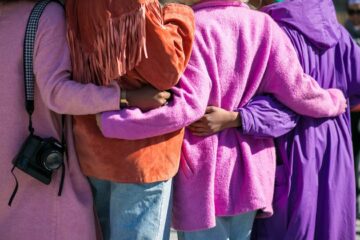When it comes to addiction recovery, one size does not fit all. Men and women experience addiction differently, and age can also play a significant role in treatment needs. To address these unique challenges and provide a more supportive environment, specialized programs have emerged in the realm of addiction rehabilitation. In this article, we’ll delve into the world of specialized programs, including gender-specific, youth, and elderly rehab centers. Whether you or a loved one is seeking recovery, understanding these tailored approaches can help you make informed decisions and embark on a successful journey to sobriety.
Skip To Contents
Gender-Specific Addiction Treatment
Men and women often have distinct experiences with addiction, and gender-specific treatment programs are designed to acknowledge and address these differences. Studies reveal variations in substance abuse rates, substance choices, and even the reasons behind substance use between men and women.
For instance, men are more likely to use substances like marijuana and alcohol, while women may lean towards non-medical use of prescription drugs. Men often turn to substance abuse for perceived benefits like improved concentration or sociability, whereas women may do so as a way to cope with trauma or abusive relationships.
Gender-specific programs offer several advantages, including specialized treatment for gender-specific physiological, emotional, and relational issues. These programs foster a sense of trust and bonding among same-sex clients, reduce sexual tension and distractions between male and female clients, and encourage open communication about social and cultural pressures that can lead to substance abuse.
Women-Specific Treatment
Women-specific addiction treatment programs cater to the unique needs of female clients. These programs provide a safe and supportive environment where women can openly discuss topics like motherhood, workplace dynamics, relationships, and family life. This setting is particularly beneficial for women who have experienced trauma, such as verbal, physical, or sexual assault by men, as they may not feel comfortable sharing these experiences in a mixed-gender group.
Additionally, mothers grappling with addiction can find solace in women-specific treatment. Balancing the responsibilities of parenthood while combating addiction is a significant challenge, and these programs empower women to discuss their experiences and seek support from peers and professionals.
By offering gender-specific treatment, rehab centers aim to ensure that every individual receives the targeted care they need, increasing the likelihood of successful recovery.
Youth and Elderly Rehab Centers
Beyond gender-specific programs, specialized rehab centers cater to specific age groups, including youth and the elderly. Adolescents and young adults face unique challenges when it comes to addiction. Peer pressure, academic stress, and the quest for independence can all contribute to substance abuse. Youth rehab centers are designed to provide age-appropriate treatment, support, and education.
Conversely, elderly individuals may struggle with addiction for various reasons, such as pain management or loneliness. Elderly rehab centers offer tailored care that addresses their unique physical and emotional needs.
In both cases, these specialized programs create a supportive environment where individuals can connect with others facing similar challenges, fostering a sense of camaraderie and understanding.
Specialized programs, including gender-specific, youth, and elderly rehab centers, play a pivotal role in addiction rehabilitation. By acknowledging the distinct experiences and needs of different groups, these programs enhance the chances of successful recovery. Whether you’re seeking treatment for yourself or a loved one, exploring specialized options can provide the tailored support needed to overcome addiction and embark on a path to lasting sobriety.


